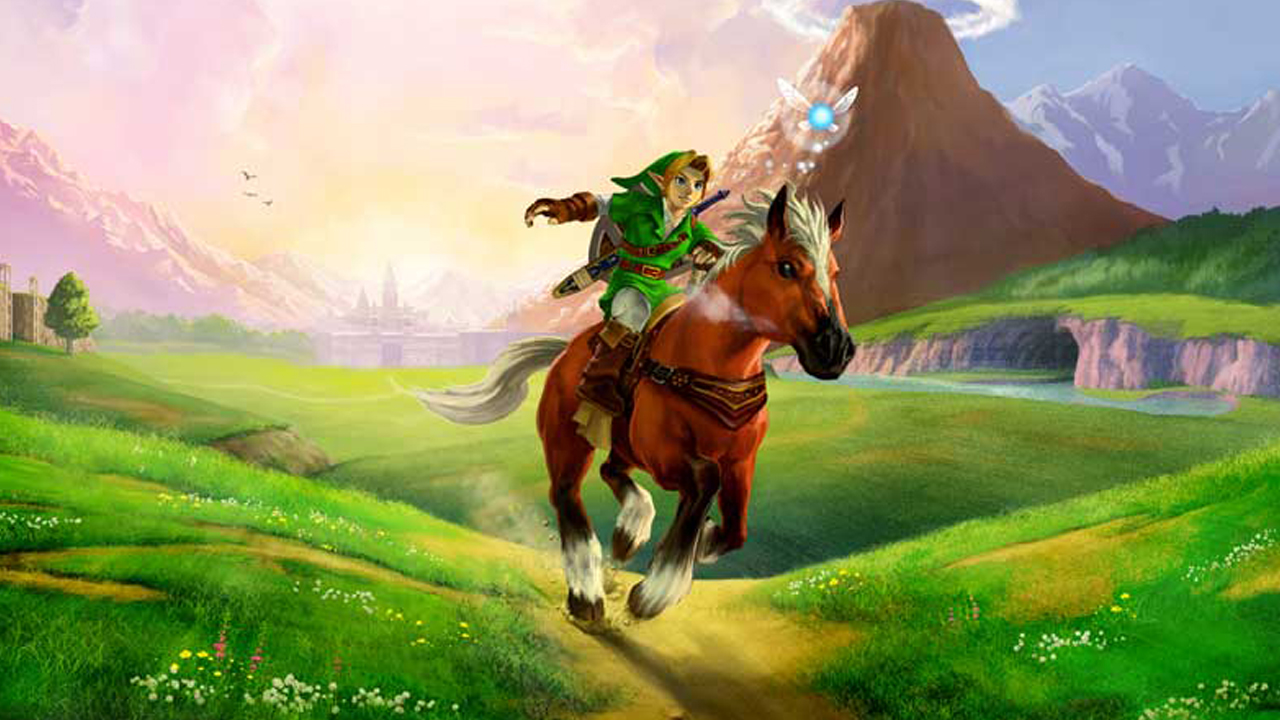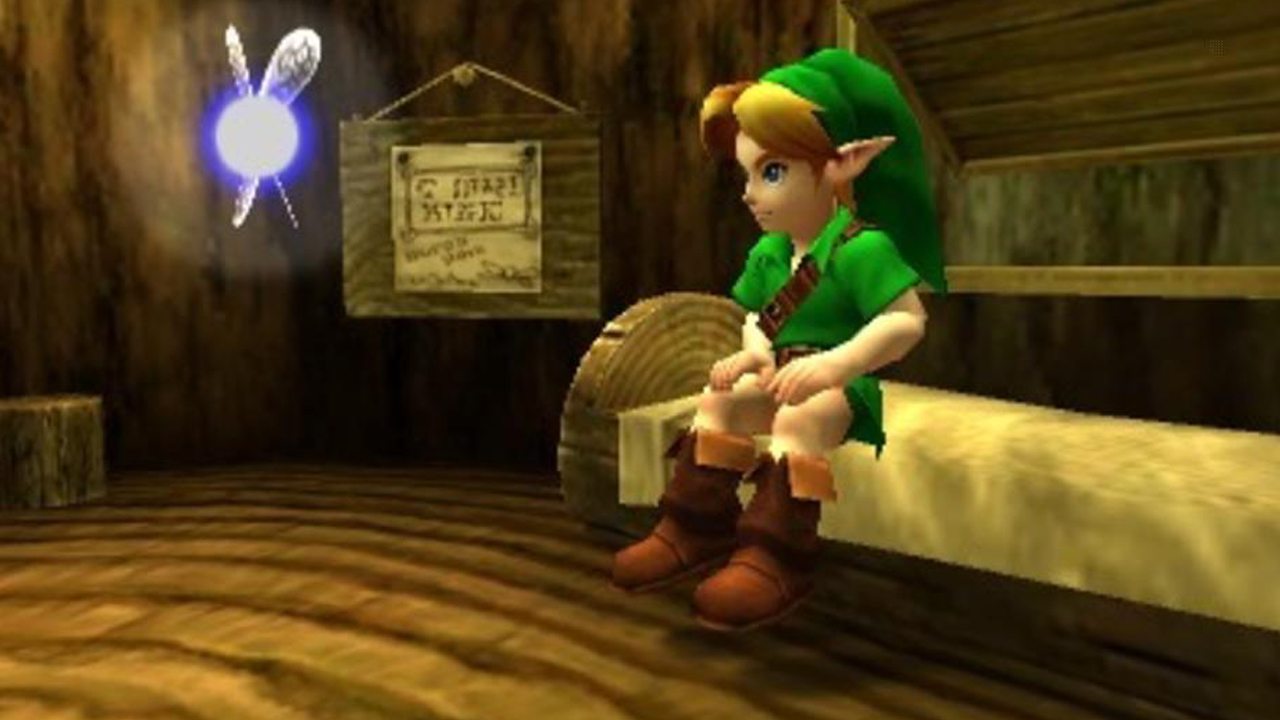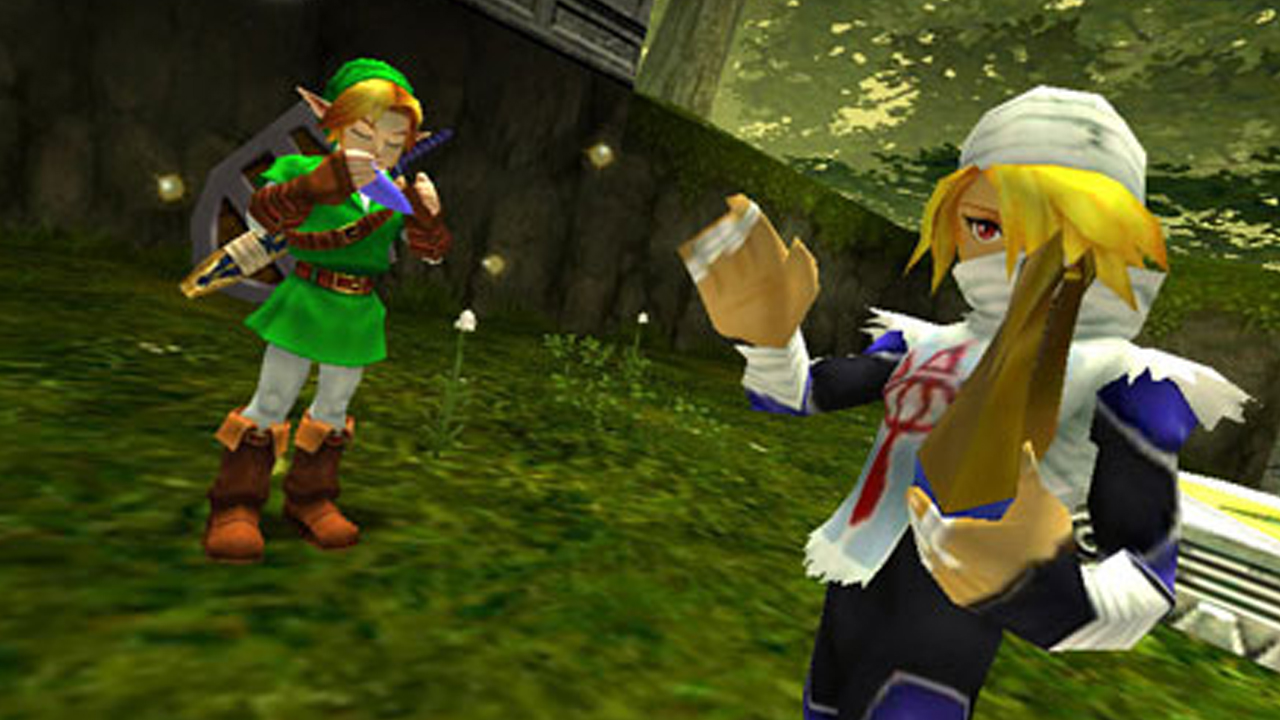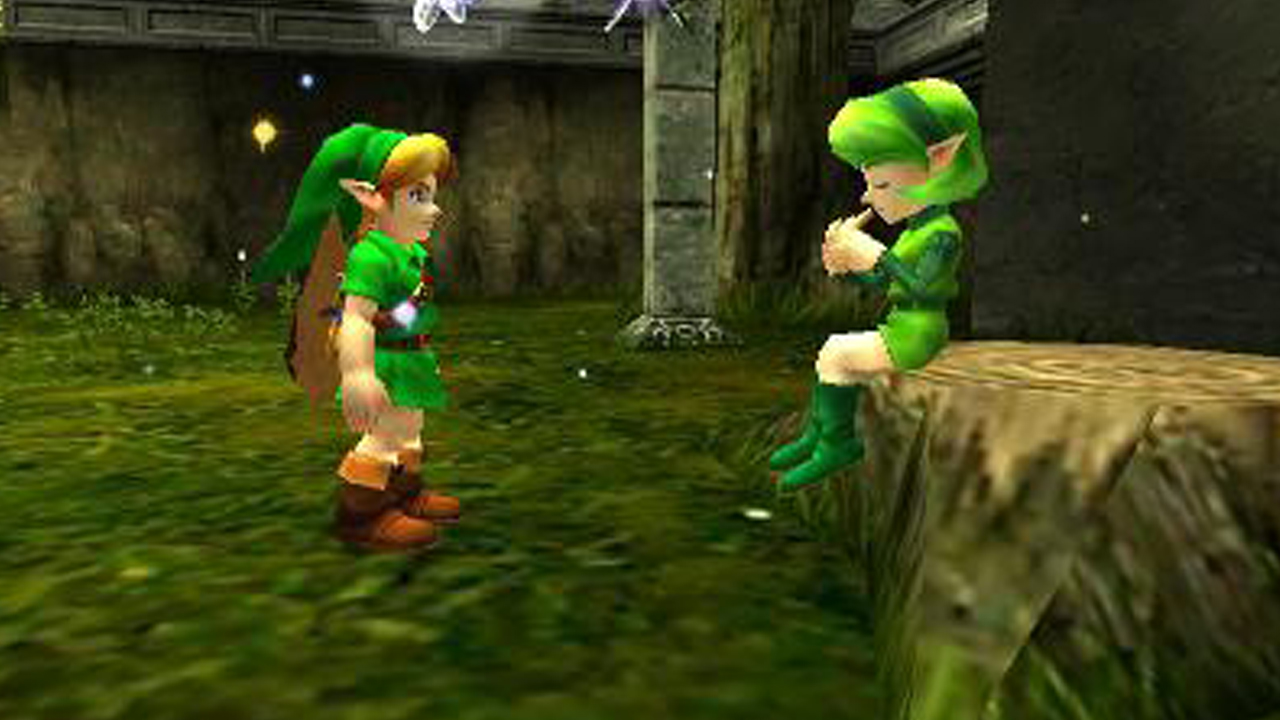20 years later, no game depicts peace as well as Zelda: Ocarina of Time
The classic Nintendo game still leads the pack when it comes to celebrating quiet moments

With a range of pipes that nuzzled my nerves into a sympathetic calm, the first time I walked out into a 3D rendered Kokiri Forest I felt more at peace than I had during any other moment in gaming. The lighthearted nature of the first handful of hours in The Legend of Zelda: Ocarina of Time left me wanting more of a version of Hyrule that wasn’t facing impending doom.
At this point I had no idea of the grand adventures that waited in a desolate, post-apocalyptic version of Hyrule, and I was ok with that. I cared enough about the world to actually want to save it, which is something I’d like to see more of in modern adventures.
The Legend of Zelda: Ocarina of Time, a classic that’s now entering its 20th anniversary, depicts peace better than any other adventure game I’ve played in my lifetime. It takes the well known literary structure of the Hero's Journey and invests deeply into exposition, making the save-the-world story more meaningful than ones that jump directly into disaster.

The Hero’s Journey, a concept theorized by a number of individuals and popularized by Joseph Campbell’s book The Hero with a Thousand Faces, is an incredibly common structure of storytelling that involves a hero who goes on an adventure, faces a decisive challenge, and goes home transformed by the trials they went through. Tons of familiar stories follow a structure similar to the Hero's Journey, including favorites like the Lord of the Rings and more unusual choices like Disney’s Lilo and Stitch.
The stage where we’re introduced to our hero and his surroundings is known as the ‘ordinary world,’ it’s supposed to be full of crucial information that grounds the hero and makes him relatable to the average player. In Lord of the Rings we get an extensive introduction to Frodo as well as his relationship to Bilbo and the Shire. His story is relatable to every high school student whoever dreamed of leaving home while not recognizing how important home is to them.
"I know. He'd probably come with me if I asked him,” Bilbo chuckled. "I think, in his heart, Frodo's still in love with the Shire: the woods, the fields, the little rivers."
Link isn’t exactly the most relatable character, he's more a blank slate for the players projection, plus its a bit harder to design a character that can be relatable to a wide audience in a blockbuster game like Ocarina of Time. Literature has a little more wiggle room there. The more meaningful information we receive in Ocarina of Time focuses on Hyrule and the landscapes, music, and life that’s inside it.
Weekly digests, tales from the communities you love, and more

While the impending doom of the story of Zelda, Ganondorf, Link, and the Triforce is always lingering throughout the game, the prelude of collecting the spiritual stones is a short trip in what will turn into a long journey. It has you experience Hyrule in all its glory with a bustling Castle Town, a charming Kakariko Village, and thriving Zora and Goron tribes. It lets you wander around in Hyrule during its heyday as a child, sneaking through a garden protected by dozens of soldiers and and infiltrating an absolutely gorgeous castle. It provides an experience that only works in a peaceful world, an experience that would be completely different if it happened after Ganon’s kidnapping of Zelda.
Ocarina of Time doesn’t subvert the structure of the Hero's Journey, it just does a great job at creating a bridge between the ordinary world we see at first and the adventure into the unordinary. Having a number of meaningful quests take place without the threat of a world-ending entity gives meaning to your actions and lets you see the difference before and after disaster strikes.
It’s a feeling that has only been touched on in other Zelda games, where the experience of a vibrant Hyrule is always taken away early on. Majoras Mask and Twilight Princess are a much darker, different kind of experience, entries like Link Between Worlds and Minish Cap don’t explore their worlds as much as their concepts would suggest, and Breath of the Wild sets you free in a post apocalyptic world with only tastes of what could have been in the form of settlements across the huge map.

While I’d love the chance to just explore Hyrule freely in a peaceful environment without the responsibility of being the hero of time, that’s not why this is so important. Like many other adventure titles today, Ocarina of Time features a world-ending threat that only you can defeat. But early quests made me care about the world, I always dreaded jumping forward in time to see Castle Town turn into a zombie-infested nightmare instead of a lively marketplace.
The balance is difficult to get right here, plenty of games linger far too long in the beginning. The absence of conflict can lead to players checking out for a more engaging time, I imagine that’s a major reason why a lot of games kick off the action sooner. A majority of Japanese RPGs like Persona and Dragon Quest follow the hero's life in the ordinary world for tens of in-game hours. An approach like that can hamper motivations and make it difficult to reach the later segments, which are usually the most satisfying.
Luckily, Ocarina of time doesn’t get hampered in the early segments since it isn’t entirely clear that the games prelude is part of a bigger adventure. Other adventures have lost sight of that, meaning it’s incredibly hard to feel convinced when you’re taking part in another save-the-world story. Recent Zelda games like Breath of the Wild - and even other major adventure like Mass Effect Andromeda - are so quick to jump into the adventure that often times the story can fall a little flat.
While story isn’t the most important element in the Zelda series, Ocarina of Time takes Hyrule through an arc that fits the mold of the Hero's Journey. It makes it almost criminal that there is no post-game content to enjoy, continuing to explore Hyrule as adult Link after Ganon has been vanquished would have been a delight. Hell, I put off fighting Ganon in most Zelda games to enjoy some time fishing lakeside.
It’s one of the biggest disappointments in Breath of the Wild, once you go through the steps to help Zelda defeat Ganon you’re reverted back to before the final boss fight. The tease of a bustling castle town and Hyrule castle feels like stolen potential with all the amazing mechanics that are featured. There was so much opportunity for additional quests set in a post-Ganon world.
It’s possible that part of this feeling that Ocarina of Time induced is nostalgia based, but that doesn’t mean that more adventure games shouldn’t try and live in the world they create before someone tries to destroy it.
Want more? Here are the best Zelda games of all time.
Aron Garst is a journalist and writer exploring the future of games and interactivity. Follow him on X at @GarstProduction.


